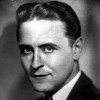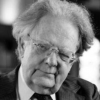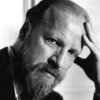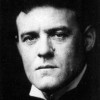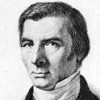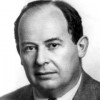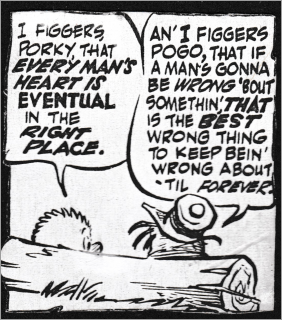Genocide is natural! Rape is natural! No, what’s natural is not necessarily good — often it’s repulsive. One of the most important functions of human society, and the driving force behind most political institutions, is to prevent humans from doing what comes naturally.
Jared Diamond (b. 1937) American geographer, historian, ornithologist, author
“Choosing Success,” interview by Catherine Seip, National Review (30 Jun 2006)
(Source)
Quotations about:
human nature
Note not all quotations have been tagged, so Search may find additional quotes on this topic.
I questioned the desire to attribute the worst aspects of human behaviour to characters whose only useful function, as I see it, aside from simply entertaining young people and anyone else who fancies an uplifting holiday in a storybook world far from the grinding monotony of pessimism and disillusion, is to provide a primary-coloured cartoon taste of how we all might be if we had the wit and the will and the self-sacrifice it takes to privilege our best selves and loftiest aspirations over our base instincts. While that great day is unlikely to happen any time soon in any halfway-familiar real world, why not let comic book universes be playgrounds for the kind of utopian impulses that have in the past brought out the best in us?
Grant Morrison (b. 1960) Scottish comic book writer and playwright
“SUPERMAN and THE AUTHORITY annotations Pt 2,” blog entry (16 Feb 2022)
(Source)
To undermine the fundamental appeal of superheroes like Superman and Supergirl by re-casting them as anti-heroes at best or outright monsters — dragging imaginary childhood paragons off their pedestals to reinforce a fairly facile point about the tendency of real world heroes to exhibit feet of clay — struck me and strikes me still as imaginatively lazy.
Grant Morrison (b. 1960) Scottish comic book writer and playwright
“SUPERMAN and THE AUTHORITY annotations Pt 2,” blog entry (16 Feb 2022)
(Source)
An interface is humane if it is responsive to human needs and considerate of human frailties.
Jef Raskin (1943-2005) American computer scientist, writer
The Humane Interface, 1-6 (2000)
(Source)
It’s always sort of amused me that mankind has been able to come up with a lot of things, two of them being napalm — which is a jellied substance that burns the skin and kills — and Silly Putty, which is something that you can press onto a comic and see a backwards picture of Popeye. And somewhere between these two extremes lies our truth. And I don’t know how good we are at pursuing it.
George Carlin (1937-2008) American comedian
Interview by Marc Cooper, The Progressive (Jul 2001)
(Source)
Discussing the title of his new book, Napalm and Silly Putty.
If a quick glance back over world history shows us anything, it shows us that war was one of our most universal joys from our earliest beginnings, savored at every possible opportunity and even some quite incomprehensible ones, like the assassination of Archduke Ferdinand, whomever he may have been.
Barbara Holland (1933-2010) American author
“War,” Wasn’t the Grass Greener? (1999)
(Source)
First appeared in Smithsonian (Jun 1992).
If only men could be depended upon to base their decisions on reason. Alas, there are only three or four of us in the world, and even we will bear watching.
That is part of the beauty of all literature. You discover that your longings are universal longings, that you’re not lonely and isolated from anyone. You belong.
F. Scott Fitzgerald (1896-1940) American writer [Francis Scott Key Fitzgerald]
Comment to Sheilah Graham (c. 1938)
Quoted in her book, Beloved Infidel: The Education of a Woman, ch. 22 (1958). Variant, in the 1959 film adaptation of the book:
The beauty of literature is that it’s ageless. You discover that your longings are universal longings, that you’re not lonely and isolated from anyone. You belong.
See also Baldwin.
More discussion of this quotation: That Is Part of the Beauty of All Literature. You Discover that Your Longings Are Universal Longings – Quote Investigator.
To suffer the civil magistrate to intrude his powers into the field of opinion and to restrain the profession or propagation of principles, on the supposition of their ill tendency, is a dangerous fallacy, which at once destroys all religious liberty, because he being of course judge of that tendency, will make his opinions the rule of judgment, and approve or condemn the sentiments of others only as they shall square with or differ from his own.
Thomas Jefferson (1743-1826) American political philosopher, polymath, statesman, US President (1801-09)
“Virginia Statute for Religious Freedom” (18 Jun 1779; enacted 16 Jan 1786)
(Source)
All through history in every culture we’ve had to make up mythology to explain death to ourselves and to explain life to ourselves.
Ray Bradbury (1920-2012) American writer, futurist, fabulist
“The Fantasy Makers: A Conversation with Ray Bradbury and Chuck Jones,” Interview by Mary Harrington Hall, Psychology Today (Apr 1968)
(Source)
Near this spot
are deposited the Remains of one
who possessed Beauty without Vanity,
Strength without Insolence,
Courage without Ferocity,
and all the Virtues of Man without his Vices.
This Praise, which would be unmeaning Flattery
if inscribed over human Ashes,
is but a just tribute to the Memory of
BOATSWAIN, a DOGGeorge Gordon, Lord Byron (1788-1824) English poet
“Epitaph to a Dog” (1808)
(Source)
Carved on the headstone over Boatswain's grave at Newstead Abbey, the family's ancestral home. Byron acquired the dog at age fifteen; Boatswain died of rabies, an endemic disease in England at the time, five years later. Byron wanted to be buried beside him, but the sale of the property made that impossible.
While the rest of the poem is considered Byron's, these first lines may have been written by his friend, John Cam Hobhouse. More discussion here.
In the course of my travels I remarked that all those whose opinions are decidedly repugnant to ours are not in that account barbarians and savages, but on the contrary that many of these nations make an equally good, if not better, use of their reason than we do. I took into account also the very different character which a person brought up from infancy in France or Germany exhibits, from that which, with the same mind originally, this individual would have possessed had he lived always among the Chinese or with savages, and the circumstance that in dress itself the fashion which pleased us ten years ago, and which may again, perhaps, be received into favor before ten years have gone, appears to us at this moment extravagant and ridiculous. I was thus led to infer that the ground of our opinions is far more custom and example than any certain knowledge.
[Et depuis, en voyageant, ayant reconnu que tous ceux qui ont des sentiments fort contraires aux nôtres ne sont pas pour cela barbares ni sauvages, mais que plusieurs usent autant ou plus que nous de raison; et ayant considéré combien un même homme, avec son même esprit, étant nourri dès son enfance entre des Français ou des Allemands, devient différent de ce qu’il seroit s’il avoit toujours vécu entre des Chinois ou des cannibales, et comment, jusques aux modes de nos habits, la même chose qui nous a plu il y a dix ans, et qui nous plaira peut-être encore avant dix ans, nous semble maintenant extravagante et ridicule; en sorte que c’est bien plus la coutume et l’exemple qui nous persuade, qu’aucune connaissance certaine.]
René Descartes (1596-1650) French philosopher, mathematician
Discourse on Method [Discours de la méthode], Part 2 (1637) [tr. Veitch (1901)]
(Source)
(Source (French)). Alternate translations:
And having since observ’d in my travails, That all those whose opinions are contrary to ours, are not therefore barbarous or savage, but that many use as much or more reason then we; and having consider’d how much one Man with his own understanding, bred up from his childhood among the French or the Dutch, becomes different from what he would be, had he alwayes liv’d amongst the Chineses, or the Cannibals: And how even in the fashion of our Clothes, the same thing which pleas’d ten years since, and which perhaps wil please ten years hence, seems now to us ridiculous and extravagant. So that it’s much more Custome and Example which perswades us, then any assured knowledg.
[tr. Newcombe ed. (1649)]
I further recognized in the course of my travels that all those whose sentiments are very contrary to ours are yet not necessarily barbarians or savages, but may be possessed of reason in as great or even a greater degree than ourselves. I also considered how very different the self-same man, identical in mind and spirit, may have become, according as he is brought up from childhood amongst the French or Germans, or has passed his whole life amongst Chinese or cannibals. I likewise noticed how even in the fashions of one's clothing the same thing that pleased us ten years ago, and which will perhaps please us once again before ten years are passed, seems at the present time extravagant and ridiculous. I thus concluded that it is much more custom and example that persuade us than any certain knowledge.
[tr. Haldane & Ross (1911)]
Since then I have recognized through my travels that those with views quite contrary to ours are not on that account barbarians or savages, but that many of them make use of reason as much or more than we do. I thought, too, how the same man, with the same mind, if brought up from infancy among the French or Germans, develops otherwise than he would if he had always lived among the Chinese or cannibals; and how, even in our fashions of dress, the very thing that pleased us ten years ago, and will perhaps please us again ten years hence, now strikes us as extravagant and ridiculous. Thus it is custom and example that persuade us, rather than any certain knowledge.
[tr. Cottingham, Stoothoff (1985)]
The trouble about man is twofold. He cannot learn truths which are too complicated; he forgets truths which are too simple.
Rebecca West (1892-1983) British author, journalist, literary critic, travel writer [pseud. for Cicily Isabel Fairfield]
The Meaning of Treason, Epilogue (1947)
(Source)
We have already discovered two species that are very intelligent but technically less advanced than us — the common chimpanzee and pygmy chimpanzee. Has our response been to sit down and try to communicate with them? Of course not. Instead we shoot them, stuff them, dissect them, cut off their hands for trophies, put them on exhibit in cages, inject them with AIDS virus as a medical experiment, and destroy or take over their habitat.
That response was predictable, because human explorers who discovered technically less advanced humans also regularly responded by shooting them, decimating their populations with new diseases, and destroying or taking over their habitat. Any advanced extraterrestrials who discovered us would surely treat us in the same way. […]
Think again of those astronomers who beamed radio signals into space from Arecibo, describing Earth’s location and its inhabitants. In its suicidal folly that act rivalled the folly of the last Inca emperor, Atahualpa, who described to his gold-crazy Spanish captors thewealth of his capital and provided them with guides for the journey. If there really are any radio civilizations within listening distance of us, then for heaven’s sake let’s turn off our own transmitters and try to escape detection, or we are doomed.
This is what the prophets discovered. History is a nightmare. There are more scandals, more acts of corruption, than are dreamed of in philosophy. It would be blasphemous to believe that what we witness is the end of God’s creation. It is an act of evil to accept the state of evil as either inevitable or final. Others may be satisfied with improvement, the prophets insist upon redemption. The way man acts is a disgrace, and it must not go on forever.
I have believed that we are neither angels nor devils, but humans, with clusters of potentials in both directions. I am neither an optimist nor pessimist, but a possibilist.
Maxwell "Max" Lerner (1902-1992) American journalist, columnist, educator
Who’s Who in America, “Max Lerner”
Summary of his beliefs recorded in his Who's Who entry. Quoted in "Max Lerner, Writer, 89, Is Dead; Humanist on Political Barricades," New York Times (6 Jun 1992).
One person by himself is not a complete human being.
Northrop Frye (1912-1991) Canadian literary critic and literary theorist
The Educated Imagination, Talk 1 “The Motive for Metaphor” (1963)
(Source)
I had discovered what one man could do to another. I am not talking about one man killing another with a gun, or dropping a bomb on him or blowing him up or torpedoing him. I am thinking of the vileness beyond all words that went on, year after year, in the totalitarian states. It is bad enough to say that so many Jews were exterminated in this way and that, so many people liquidated — lovely, elegant word — but there were things done during that period from which I still have to avert my mind lest I should be physically sick. They were not done by the headhunters of New Guinea, or by some primitive tribe in the Amazon. They were done, skilfully, coldly, by educated men, doctors, lawyers, by men with a tradition of civilization behind them, to beings of their own kind. I must say that anyone who moved through those years without understanding that man produces evil as a bee produces honey must have been blind or wrong in the head.
William Golding (1911-1983) British novelist, playwright, poet
“Lord of the Flies as Fable,” Lecture, UCLA (1962)
(Source)
Reprinted in The Hot Gates (1965).
I’d write a story once in a while, but I wouldn’t pester editors with it. I’d write of people and places like I knew, and I’d make my characters talk everyday English; and I’d let the sun rise and set in the usual quiet way without much fuss over the fact. If I had to have villains at all, I’d give them a chance, Anne — I’d give them a chance. There are some terrible bad men in the world, I suppose, but you’d have to go a long piece to find them — though Mrs. Lynde believes we’re all bad. But most of us have got a little decency somewhere in us.
Lucy Maud Montgomery (1874-1942) Canadian author
Anne of the Island, ch. 12 [Mr. Harrison] (1915)
(Source)
Men will learn eventually, and if they insist on rejecting the received wisdom of generations past, they do not thereby succeed at invalidating it; they merely condemn themselves to learning it, time and again, by ever grimmer experience.
Hilaire Belloc (1870-1953) Franco-British writer, historian [Joseph Hilaire Pierre René Belloc]
(Misattributed)
(Source)
While usually attributed to Belloc, and even further to his essay "The Restoration of Property" (1936), it does not appear in that work, proper. Rather, it is found in the Introduction to the 2002 IHS Press edition the work, signed only by the Directors of the IHS Press.
It is in vain to Say that Democracy is less vain, less proud, less selfish, less ambitious or less avaricious than Aristocracy or Monarchy. It is not true in Fact and no where appears in history. Those Passions are the same in all Men under all forms of Simple Government, and when unchecked, produce the same Effects of Fraud Violence and Cruelty. When clear Prospects are opened before Vanity, Pride, Avarice or Ambition, for their easy gratification, it is hard for the most considerate Phylosophers and the most conscientious Moralists to resist the temptation. Individuals have conquered themselves, Nations and large Bodies of Men, never.
John Adams (1735-1826) American lawyer, Founding Father, statesman, US President (1797-1801)
Letter to John Taylor (17 Dec 1814)
(Source)
We were born of risen apes, not fallen angels, and the apes were armed killers besides. And so what shall we wonder at? Our murders and massacres and missiles, and our irreconcilable regiments? Or our treaties whatever they may be worth; our symphonies however seldom they may be played; our peaceful acres, however frequently they may be converted to battlefields; our dreams however rarely they may be accomplished. The miracle of man is not how far he has sunk but how magnificently he has risen. We are known among the stars by our poems, not our corpses.
Robert Ardrey (1908-1980) American playwright, screenwriter and science writer
African Genesis: A Personal Investigation into the Animal Origins and Nature of Man (1961)
(Source)
Yet if states were destroyed, local institutions corrupted, and economic incentives directed towards murder, few of us would behave well. There is little reason to think that we are ethically superior to the Europeans of the 1930s and 1940s, or for that matter less vulnerable to the kind of ideas that Hitler so successfully promulgated and realized.
Timothy Snyder (b. 1969) American historian, author
Black Earth: The Holocaust as History and Warning, “Conclusion” (2015)
(Source)
In all men is evil sleeping; the good man is he who will not awaken it, in himself or in other men.
There is in the soul of every man, something naturally soft, low, enervated in a manner, and languid. Were there nothing besides this, men would be the greatest of monsters; but there is present to every man reason, which presides over, and gives laws to all; which, by improving itself, and making continual advances, becomes perfect virtue.
[Est in animis omnium fere natura molle quiddam, demissum, humile, enervatum quodam modo et languidum. Si nihil esset aliud, nihil esset homine deformius. sed praesto est domina omnium et regina ratio, quae conixa per se et progressa longius fit perfecta virtus.]
Marcus Tullius Cicero (106-43 BC) Roman orator, statesman, philosopher
Tusculan Disputations [Tusculanae Disputationes], Book 2, ch. 21 (2.21) / sec. 47 (45 BC) [tr. Yonge (1853)]
(Source)
(Source (Latin)). Alternate translations:
There is in the Souls of all men, in a manner, naturally somewhat lasche, mean, low-spirited, in a sort emasculate and feeble; were there nothing else, man would be the most deformed thing in the World; but Reason the Lady and Empress of all things, is at hand to help; which bearing up on her own strength, and advancing farther, becometh, at length, accomplish'd Vertue
[tr. Wase (1643)]
Every soul of man has naturally something soft, low, enervated in a manner, and languid. Were there nothing besides this, men would be the greatest of monsters; but there is present to every man reason, which presides and gives law to all, which by improving itself, and making continual advances, becomes perfect virtue.
[tr. Main (1824)]
There is, in the minds of nearly all men, by nature, something soft, abject, low, enervated somehow, and languid, doting. If this were all, nothing were more disgusting than man. But there is also the mistress and queen of all things, reason, who, supported by herself, and after long progress, becomes perfect virtue.
[tr. Otis (1839)]
There is naturally in the soul of almost every man something soft, low, earthy, in a certain degree nerveless and feeble. But reason is at hand, mistress and queen of all, which by its own force striving and advancing upward, becomes perfect virtue.
[tr. Peabody (1886)]
There is in practically everybody's souls by nature something soft, lowly, abject, nerveless so to speak, and feeble. If there were nothing else, a human being would be the ugliest thing that exists. But at hand is the mistress and queen of all, Reason, which through its own strivings advances forward and becomes perfected virtue.
[tr. Douglas (1990)]
Nature has seen to it that there is in the souls of virtually all people an element of softness, of lowliness, of the abject, of, as it were, what is nerveless and feeble. If he possessed nothing beyond this, man would be the most hideous of all creatures; but at his side stands reason, the mistress and queen of all, who through striving by her own strength and forging onward becomes perfected virtue.
[tr. Davie (2017)]
A man can’t help his feelings sometime. He don’t even understand his damn self half the time and there the trouble starts.
If the natural tendencies of mankind are so bad that it is not safe to permit people to be free, how is it that the tendencies of these organizers are always good? Do not the legislators and their appointed agents also belong to the human race? Or do they believe that they themselves are made of a finer clay than the rest of mankind?
[Puisque les tendances naturelles de l’humanité sont assez mauvaises pour qu’on doive lui ôter sa liberté, comment se fait-il que les tendances des organisateurs soient bonnes ? Les Législateurs et leurs agents ne font-ils pas partie du genre humain ? Se croient-ils pétris d’un autre limon que le reste des hommes?]
Frédéric Bastiat (1801-1850) French philosopher, economist, politician
The Law [La Loi] (1850) [tr. Russell]
(Source)
“Those who fought know a secret about themselves, and it is not very nice.” They have experienced secretly and privately their natural human impulse toward sadism and brutality. […] Not merely did I learn to kill with a noose of piano wire put around somebody’s neck from behind, but I learned to enjoy the prospect of killing that way. It’s those things that you learn about yourself that you never forget. You learn that you have much wider dimensions than you had imagined before you had to fight a war. That’s salutary. It’s well to know exactly who you are so you can conduct the rest of your life properly.
Paul Fussell (1924-2012) American cultural and literary historian, author, academic
“The Initial Shock,” Interview by Sheldon Hackney, Humanities (Nov/Dec 1996)
(Source)
Society is like the air, necessary to breathe but insufficient to live on.
George Santayana (1863-1952) Spanish-American poet and philosopher [Jorge Agustín Nicolás Ruíz de Santayana y Borrás]
The Life of Reason, Vol. 2: Reason in Society, ch. 8 “Ideal Society” (1905)
(Source)
Some people think that evolutionary psychology claims to have discovered that human nature is selfish and wicked. But they are flattering the researchers and anyone who would claim to have discovered the opposite. No one needs a scientist to measure whether humans are prone to knavery. The question has been answered in the history books, the newspapers, the ethnographic record, and the letters to Ann Landers. But people treat it like an open question, as if someday science might discover that it’s all a bad dream and we will wake up to find that it is human nature to love one another.
Steven Pinker (b. 1954) Canadian-American cognitive psychologist, linguist, author
How the Mind Works, ch. 7 (1997)
(Source)
Crowley had always known that he would be around when the world ended, because he was immortal and wouldn’t have any alternative. But he hoped it was a long way off.
Because he rather liked people.
It was major failing in a demon. Oh, he did his best to make their short lives miserable, because that was his job, but nothing he could think up was half as bad as the stuff they thought up themselves. They seemed to have a talent for it. It was built into the design, somehow. They were born into a world that was against them in a thousand little ways, and then devoted most of their energies to making it worse. Over the years Crowley had found it increasingly difficult to find anything demonic to do which showed up against the natural background of generalized nastiness. There had been times, over the past millennium, when he’d felt like sending a message back Below saying, Look we may as well give up right now, we might as well shut down Dis and Pandemonium and everywhere and move up here, there’s nothing we can do to them that they don’t do to themselves and they do things we’ve never even thought of, often involving electrodes. They’ve got what we lack. They’ve got imagination. And electricity, of course.
One of them had written it, hadn’t he … “Hell is empty, and all the devils are here.”
Terry Pratchett (1948-2015) English author
Good Omens, 2. “Eleven Years Ago” (1990) [with Neil Gaiman]
(Source)
It is just as foolish to complain that people are selfish and treacherous as it is to complain that the magnetic field does not increase unless the electric field has a curl. Both are laws of nature.
John von Neumann (1903-1957) Hungarian-American mathematician, physicist, inventor, polymath [János "Johann" Lajos Neumann]
(Attributed)
(Source)
More in Eugene Wigner, "John von Neumann (1903-1957)," Yearbook of the American Philosophical Society (1958); later collected in Wigner's Symmetries and Reflections.
The question I get asked by religious people all the time is, without God, what’s to stop me from raping all I want? And my answer is: I do rape all I want. And the amount I want is zero. And I do murder all I want, and the amount I want is zero. The fact that these people think that if they didn’t have this person watching over them that they would go on killing, raping rampages is the most self-damning thing I can imagine. I don’t want to do that. Right now, without any god, I don’t want to jump across this table and strangle you. I have no desire to strangle you. I have no desire to flip you over and rape you.
Penn Jillette (b. 1955) American stage magician, actor, musician, author
“Penn Jillette Rapes All the Women He Wants To,” Interview by Ron Bennington,Interrobang (30 Apr 2012)
(Source)
We are all born brave, trusting and greedy, and most of us manage to remain greedy.
Mignon McLaughlin (1913-1983) American journalist and author
The Second Neurotic’s Notebook, ch. 9 (1966)
(Source)
POGO: I figgers, Porky, that every man’s heart is eventual in the right place.
PORKY PINE: An’ I figgers, Pogo, that if a man’s gonna be wrong ’bout somethin’, that is the best wrong thing to keep bein’ wrong about til forever.
Walt Kelly (1913-1973) American animator and cartoonist [Walter Crawford Kelly, Jr.]
The Incompleat Pogo, ch. 20 “A Tiger Burns Bright” (1953)
(Source)
Many sources paraphrase this as:POGO: Eventual Porky, I figger ev'ry critter's heart's in the right place.
PORKY PINE: If you gotta be wrong 'bout somthin', that's 'bout the best thing they is to be wrong 'bout.
Man the master, ingenious past all measure,
past all dreams the skills within his grasp —
he forges on, now to destruction,
now again to greatness. When he weaves in
the laws of the land, and the justice of the gods
that bind his oaths together
he and his city rise high —
but the city casts out
that man who weds himself to inhumanity
thanks to reckless daring. Never share my hearth,
never think my thoughts, whoever does such things.[σοφόν τι τὸ μηχανόεν τέχνας ὑπὲρ ἐλπίδ᾽ ἔχων
τοτὲ μὲν κακόν, ἄλλοτ᾽ ἐπ᾽ ἐσθλὸν ἕρπει,
νόμους γεραίρων χθονὸς θεῶν τ᾽ ἔνορκον δίκαν,
370ὑψίπολις: ἄπολις ὅτῳ τὸ μὴ καλὸν
ξύνεστι τόλμας χάριν. μήτ᾽ ἐμοὶ παρέστιος
γένοιτο μήτ᾽ ἴσον φρονῶν ὃς τάδ᾽ ἔρδει.]Sophocles (496-406 BC) Greek tragic playwright
Antigone, l. 365ff, Stasimon 1, Antistrophe 2 [Chorus] (441 BC) [tr. Fagles (1982)]
(Source)
Original Greek. Alternate translations:
Wise in his craft of art
Beyond the bounds of expectation,
The while to good he goes, the while to evil.
Honouring his country's laws and heaven's oathbound right,
High is he in the state!
But cityless is he with whom inherent baseness dwells;
When boldness dares so much,
No seat by me at festive hearth,
No seat by me in sect or party,
For him that sinneth!
[tr. Donaldson (1848)]
Passing the wildest flight thought are the cunning and skill,
That guide man now to the light, but now to counsels of ill.
If he honors the laws of the land, and reveres the Gods of the State
Proudly his city shall stand; but a cityless outcast I rate
Whoso bold in his pride from the path of right doth depart;
Ne'er may I sit by his side, or share the thoughts of his heart.
[tr. Storr (1859)]
Inventive beyond wildest hope, endowed with boundless skill,
One while he moves toward evil, and one while toward good,
According as he loves his land and fears the Gods above.
Weaving the laws into his life and steadfast oath of Heaven,
High in the State he moves but outcast he,
Who hugs dishonour to his heart and follows paths of crime
Ne'er may he come beneath my roof, nor think like thoughts with me.v [tr. Campbell (1873)]
Possessing resourceful skill, a subtlety beyond expectation he moves now to evil, now to good. When he honors the laws of the land and the justice of the gods to which he is bound by oath, his city prospers. But banned from his city is he who, thanks to his rashness, couples with disgrace. Never may he share my home, never think my thoughts, who does these things!
[tr. Jebb (1891)]
Cunning beyond fancy's dream is the fertile skill which brings him, now to evil, now to good. When he honours the laws of the land, and that justice which he hath sworn by the gods to uphold, proudly stands his city: no city hath he who, for his rashness, dwells with sin. Never may he share my hearth, never think my thoughts, who doth these things!
[tr. Jebb (1917)]
O clear intelligence, force beyond all measure!
O fate of man, working both good and evil!
When the laws are kept, how proudly his city stands!
When the laws are broken, what of his city then?
Never may the anarchic man find rest at my hearth,
Never be it said that my thoughts are his thoughts.
[tr. Fitts/Fitzgerald (1939), l. 285ff]
O wondrous subtlety of man, that draws
To good or evil ways! Great honor is given
And power to him who upholdeth his country’s laws
And the justice of heaven.
But he that, too rashly daring, walks in sin
In solitary pride to his life’s end.
At door of mine shall never enter in
To call me friend.
[tr. Watling (1947)]
Clever beyond all dreams
the inventive crat that he has
which may drive him one time or another to well or ill.
When he honors the laws of the land and the gods' sworn right
high indeed is his city; but stateless is the man
who dares to dwell with dishonor. Not by my fire,
never to share my thoughts, who does these things.
[tr. Wyckoff (1954)]
Surpassing belief, the device and
Cunning that Man has attained,
And it bringeth him now to evil, now to good.
If he observe Law, and tread
The righteous path God ordained,
Honored is he; dishonored, the man whose reckless heart
Shall make him join hands with sin:
May I not think like him,
Nor may such an impious man
Dwell in my house.
[tr. Kitto (1962)]
He has cunning contrivance,
Skill surpassing hope,
And so he slithers into wickedness sometimes,
Other times into doing good.
If he honors the law of the land
And the oath-bound justice of the gods,
Then his city shall stand high.
But no city for him if he turns shameless out of daring.
He will be no guest of mine,
He will never share my thoughts,
If he goes wrong.
[tr. Woodruff (2001)]
Possessing a means of invention, a skillfulness beyond expectation,
now toward evil he moves, now toward good.
By integrating the laws of the earth
and justice under oath sworn to the gods,
he is lofty of city. Citiless is the man with whom ignobility
because of his daring dwells.
May he never reside at my hearth
or think like me,
whoever does such things.
[tr. Tyrell/Bennett (2002)]
And though his wisdom is great in discovery -- wisdom beyond all imaginings!
Yet one minute it turns to ill the next again to good.
But whoever honours the laws of his land and his sworn oaths to the gods, he’ll bring glory to his city.
The arrogant man, on the other hand, the man who strays from the righteous path is lost to his city. Let that man never stay under the same roof as me or even be acquainted by me!
[tr. Theodoridis (2004)]
The qualities of his inventive skills
bring arts beyond his dreams and lead him on,
sometimes to evil and sometimes to good.
If he treats his country’s laws with due respect
and honours justice by swearing on the gods,
he wins high honours in his city.
But when he grows bold and turns to evil,
then he has no city. A man like that --
let him not share my home or know my mind.
[tr. Johnston (2005), l. 415ff]
With clever creativity beyond expectation, he moves now to evil, now to good. The one who observes the laws of the land and justice, our compat with the gods, is honored in the city, but there is no city for one who participates in what is wrong for the sake of daring. Let him not share my hearth, nor let me share his ideas who had done these things.
[tr. Thomas (2005)]
The human mind seldom arrives at truth upon any subject till it has first reached the extremity of error.
Benjamin Rush (1746-1813) American physician, writer, educator, humanitarian
“Effects of Public Punishments Upon Criminals, and Upon Society” (1787)
(Source)
The same distinction marks off Tragedy from Comedy; for Comedy aims at representing men as worse, Tragedy as better than in actual life.
[ἐν αὐτῇ δὲ τῇ διαφορᾷ καὶ ἡ τραγῳδία πρὸς τὴν κωμῳδίαν διέστηκεν: ἡ μὲν γὰρ χείρους ἡ δὲ βελτίους μιμεῖσθαι βούλεται τῶν νῦν.]
Aristotle (384-322 BC) Greek philosopher
Poetics [Περὶ ποιητικῆς, De Poetica], ch. 2, sec. 4 / 1448a (c. 335 BC) [tr. Butcher (1895)]
(Source)
Original Greek. Alternate translations:
This difference it is that distinguishes Tragedy and Comedy also; the one would make its personages worse, and the other better, than the men of the present day.
[tr. Bywater (1909)]
Tragedy and Comedy are at the Poles: for the former means to portray a superior, the latter an inferior being to modern man.
[tr. Margoliouth (1911)]
It is just in this respect that tragedy differs from comedy. The latter sets out to represent people as worse than they are to-day, the former as better.
[tr. Fyfe (1932)]
Tragedy too is distinguished from comedy by precisely this difference; comedy prefers to represent people who are worse than those who exist, tragedy people who are better.
[tr. Janko (1987), 1.3]
And tragedy stands in the same relation of difference to comedy; for the one tends to take as subjects men worse than the general run, and the other takes men better than we are.
[tr. Whalley (1997)]
And by this very difference tragedy stands apart in relation to comedy, for the latter intends to imitate those who are worse, and the former better, than people are now.
[tr. Sachs (2006)]
The very same difference makes the distinction between tragedy and comedy: the latter aims to represent people as worse, and the former as better, than people nowadays are.
[tr. Kenny (2013)]
That is, natural selection built the brain to survive in the world and only incidentally to understand it at a depth greater than is needed to survive. The proper task of scientists is to diagnose and correct the misalignment.
E. O. Wilson (1929-2021) American biologist, naturalist, writer [Edward Osborne Wilson]
Consilience, ch. 4 (1998)
(Source)
Christ by his crucifixion demonstrated exactly what the assault of cruelty on the innocent means; and the subsequent services devised by the early church commemorated the beauty of the virtue that was slain and the beastliness shown by the slayer, and reiterated the warning that this was the kind of crime man was inherently likely to commit unless he watched himself. There could be no more proper medicine for the human disease. But the church has poured as much of the draft as possible down the drain by its attempts to account for the crucifixion of Christ as an atonement for the sins of man instead of a demonstration of them.
Rebecca West (1892-1983) British author, journalist, literary critic, travel writer [pseud. for Cicily Isabel Fairfield]
“Pleasure Be Your Guide,” The Nation, “Living Philosophies” series #10 (25 Feb 1939)
(Source)
Adapted into Clifton Fadiman, I Believe: The Personal Philosophies of Certain Eminent Men and Women of Our Time (1952).
But indeed we need no further argument in favor of taking pleasure as a standard when we consider the only alternative that faces us. If we do not live for pleasure we shall soon find ourselves living for pain. If we do not regard as sacred our own joys and the joys of others, we open the door and let into life the ugliest attribute of the human race, which is cruelty.
Rebecca West (1892-1983) British author, journalist, literary critic, travel writer [pseud. for Cicily Isabel Fairfield]
“Pleasure Be Your Guide,” The Nation, “Living Philosophies” series #10 (25 Feb 1939)
(Source)
Adapted into Clifton Fadiman, I Believe: The Personal Philosophies of Certain Eminent Men and Women of Our Time (1952).
We must not suppose that, because a man is a rational animal, he will, therefore, always act rationally; or, because he has such or such a predominant passion, that he will act invariably and consequentially in the pursuit of it. No, we are complicated machines; and though we have one main spring that gives motion to the whole, we have an infinity of little wheels, which, in their turns, retard, precipitate, and sometimes stop that motion.
Lord Chesterfield (1694-1773) English statesman, wit [Philip Dormer Stanhope]
Letter to his son, #209 (19 Dec 1749)
(Source)
But, however tardily, I nonetheless caught myself and realized I had always devoted my time and attention to people who fascinated me and were pleasant, who engaged my sympathy, and that as a result I was seeing society like the Moon, always from one side.
Alexander Solzhenitsen (1918-2008) Russian novelist, emigre [Aleksandr Isayevich Solzhenitsyn]
The Gulag Archipelago, Vol. 2 (1974) [tr. Whitney]
(Source)
It is absurd to hold that a man ought to be ashamed of being unable to defend himself with his limbs but not of being unable to defend himself with reason when the use of reason is more distinctive of a human being than the use of his limbs.
[πρὸς δὲ τούτοις ἄτοπον εἰ τῷ σώματι μὲν αἰσχρὸν μὴ δύνασθαι βοηθεῖν ἑαυτῷ, λόγῳ δ᾽ οὐκ αἰσχρόν: ὃ μᾶλλον ἴδιόν ἐστιν ἀνθρώπου τῆς τοῦ σώματος χρείας.]
Aristotle (384-322 BC) Greek philosopher
Rhetoric [Ῥητορική; Ars Rhetorica], Book 1, ch. 1, sec. 12 (1.1.12) / 1355b.1 (350 BC) [tr. Roberts (1924)]
(Source)
(Source (Greek)). Alternate translations:
Absurd were it, if inability to defend oneself, in the case of the body be disgraceful, but in the case of the reason, which is more peculiarly the characteristic of man than the use of his body, be not disgraceful.
[Source (1847)]
It were absurd, if, while it is disgraceful for a man not to be able to assist himself by his person, it were not disgraceful to be unable to do this by his speech, which is more a peculiarity of man than the exercise of the body.
[tr. Buckley (1850)]
It would be absurd that, while incapacity for physical self-defence is a reproach, incapacity for mental defence should be none; mental effort being more distinctive of man than bodily effort.
[tr. Jebb (1873)]
It would be absurd if it were considered disgraceful not to be able to defend oneself with the help of the body, but not disgraceful as far as speech is concerned, whose use is more characteristic of man than that of the body.
[tr. Freese (1926)]
It would make no sense for an inability to defend oneself by physical means to be a source of shame, while an inability to defend oneself by verbal means was not, since the use of words is more specifically human than the use of the body.
[tr. Waterfield (2018)]
It is strange if it is a shameful thing not to be able to come to one's own aid with one's body but not a shameful thing to be unable to do so by means of argument, which is to a greater degree a human being's own than is the use of the body.
[tr. Bartlett (2019)]
Human nature, if it changes at all, changes not much faster than the geological face of the earth.
Alexander Solzhenitsen (1918-2008) Russian novelist, emigre [Aleksandr Isayevich Solzhenitsyn]
The Gulag Archipelago, Vol. 1 (1973) [tr. Whitney]
(Source)
Physics is, hopefully, simple. Physicists are not.
Edward Teller (1908-2003) Hungarian-American theoretical physicist
Conversations on the Dark Secrets of Physics, ch. 10 (1991) [with Wendy Teller and Wilson Talley]
(Source)
Confront a child, a puppy, and a kitten with a sudden danger; the child will turn instinctively for assistance, the puppy will grovel in abject submission, the kitten will brace its tiny body for a frantic resistance.
H. H. Munro (1870-1916) Scottish writer [Hector Hugh Munro; pseud. Saki]
“The Achievement of the Cat” (1924)
(Source)
Traces of nobility, gentleness and courage persist in all people, do what we will to stamp out the trend. So, too, do those characteristics which are ugly. It is just unfortunate that in the clumsy hands of a cartoonist all traits become ridiculous, leading to a certain amount of self-conscious expostulation and the desire to join battle.
There is no need to sally forth, for it remains true that those things which make us human are, curiously enough, always close at hand. Resolve then, that on this very ground, with small flags waving and tinny blast on tiny trumpets, we shall meet the enemy, and not only may he be ours, he may be us.
Forward!
Walt Kelly (1913-1973) American animator and cartoonist [Walter Crawford Kelly, Jr.]
The Pogo Papers, Introduction (1953)
This looks to be the origin of the famous Pogo phrase, "We have met the enemy and he is us," which Kelly introduced in that shorter form in 1970. Both are inspired by Oliver Perry's report on the Battle of Lake Erie (1813), "We have met the enemy and they are ours."
Now, that man is more of a political animal than bees or any other gregarious animals is evident. Nature, as we often say, makes nothing in vain, and man is the only animal whom she has endowed with the gift of speech.
[διότι δὲ πολιτικὸν ὁ ἄνθρωπος ζῷον πάσης μελίττης καὶ παντὸς ἀγελαίου ζῴου μᾶλλον, δῆλον. οὐθὲν γάρ, ὡς φαμέν, μάτην ἡ φύσις ποιεῖ·]
Aristotle (384-322 BC) Greek philosopher
Politics [Πολιτικά], Book 1, ch. 2, sec. 10 / 1253a.7-11 [tr. Jowett (1885)]
(Source)
Original Greek. Alternate translations:
- "And that man is a social animal in a fuller sense than any bee or gregarious animal is evident; for nature, we say, makes nothing without an object, and man is the only animal that possesses rational speech." [tr. Bolland (1877)]
- "The gift of speech also evidently proves that man is a more social animal than the bees, or any of the herding cattle: for nature, as we say, does nothing in vain, and man is the only animal who enjoys it." [tr. Ellis (1912)]
- "And why man is a political animal in a greater measure than any bee or any gregarious animal is clear. For nature, as we declare, does nothing without purpose; and man alone of the animals possesses speech." [tr. Rackham (1932)]
- "That man is much more a political animal than any kind of bee or any herd animal is clear. For, as we assert, nature does nothing in vain; and man alone among the animals has speech." [tr. Lord (1984)]
- "It is also clear why a human is more of a political animal than any bee or any other gregarious animal. For nature does nothing pointlessly, as we say, and a human being alone among the animals has speech." [tr. Reeve (2007)]
- "It is clear that man is a political animal, more than every bee and herd animal: for nature makes nothing in vain and man alone of living things has reason." [tr. @sentantiq (2011)]
The greatest bloodshed? The most murders? I would say two things: sincere love and a sincere devotion to liberty. … If you kill out of love or for the perfect utopia, you never stop killing because human nature is always imperfect.
Peter Viereck (1916-2006) American poet, historian, academic
“Clio is No Cleo: The Messiness of History,” lecture, Mt. Holyoke College (1997)
(Source)
Reprinted in Society (Mar 2004) and collected in Strict Wildness (2008).
I think, for what my young opinion’s worth,
That good as it is to have infallible wisdom,
Since this is rarely found, the next best thing
Is to be willing to listen to wise advice.[γνώμη γὰρ εἴ τις κἀπ᾽ ἐμοῦ νεωτέρου
πρόσεστι, φήμ᾽ ἔγωγε πρεσβεύειν πολὺ
φῦναι τὸν ἄνδρα πάντ᾽ ἐπιστήμης πλέων:
εἰ δ᾽ οὖν, φιλεῖ γὰρ τοῦτο μὴ ταύτῃ ῥέπειν,
καὶ τῶν λεγόντων εὖ καλὸν τὸ μανθάνειν.]Sophocles (496-406 BC) Greek tragic playwright
Antigone, l. 719ff [Haemon] (441 BC) [tr. Watling (1947)]
(Source)
Original Greek. Alternate translations:
For, if grounded maxims
May find their utterance e'en in me your son,
I dare be bold to say 'tis better far
That understanding should be born in man:
But if this may not be: -- and, to say sooth,
The common scale inclines not thus, -- 'tis well
To learn from any one who reasons soundly.
[tr. Donaldson (1848)]
For, if one young in years may claim some sense,
I'll say 'tis best of all to be endowed
With absolute wisdom; but, if that's denied,
(And nature takes not readily that ply)
Next wise is he who lists to sage advice.
[tr. Campbell (1873)]
If any judgement hath informed my youth,
I grant it noblest to be always wise,
But, -- for omniscience is denied to man --
Tis good to hearken to admonishment.
[tr. Storr (1859)]
For if even from me, a younger man, a worthy thought may be supplied, by far the best thing, I believe, would be for men to be all-wise by nature. Otherwise -- since most often it does not turn out that way -- it is good to learn in addition from those who advise you well.
[tr. Jebb (1891)]
For if I, a younger man, may offer my thought, it were far best, I ween, that men should be all-wise by nature; but, otherwise -- and oft the scale inclines not so -- 'tis good also to learn from those who speak aright.
[tr. Jebb (1917)]
I know I am young; but please let me say this: The ideal condition
Would be, I admit, that men should be right by instinct;
But since we are all too likely to go astray,
The reasonable thing is to learn from those who can teach.
[tr. Fitts/Fitzgerald (1939), l. 578ff]
Young as I am, if I may give advice,
I'd say it would be best if men were born
perfect in wisdom, but failing this
(which often fails) it can be no dishonor
to learn from others when they speak good sense.
[tr. Wyckoff (1954)]
If one who is still young can speak with sense,
Then I would say that he does best who has
Most understanding; second best, the man
Who profits from the wisdom of another.
[tr. Kitto (1962)]
I'm young, I know, but let me offer this:
it would be best by far, I admit,
if a man were born infallible, right by nature.
If not -- and things don't often go that way --
it's best to learn from those with good advice.
[tr. Fagles (1982), l. 805ff]
For if an opinion comes up from me, a younger person,
I say it is by far best that a man be born filled with
wisdom. If he is not, for the scale does not usually so incline,
to learn from those speaking competently is a noble thing.
[tr. Tyrell/Bennett (2002)]
I’m younger, I know but I still might be able to judge what’s right and I say that it’s a good thing for a man to be born with all possible wisdom but still -- because it’s not such a common thing -- to be able to learn from others.
[tr. Theodoridis (2004)]
For if I, as a younger man, may state
my views, I’d say it would be for the best
if men by nature understood all things --
if not, and that is usually the case,
when men speak well, it good to learn from them.
[tr. Johnston (2005)]
Even though I'm young, a good idea might come from me: It would be best by far that man be born full of all the knowledge there is, but, if it usually happens not to turn out that way, to learn from those who speak well is a good substitute.
[tr. Thomas (2005)]
Above all, the search after truth and its eager pursuit are peculiar to man. And so, when we have leisure from the demands of business cares, we are eager to see, to hear, to learn something new, and we esteem a desire to know the secrets or wonders of creation as indispensable to a happy life. Thus we come to understand that what is true, simple, and genuine appeals most strongly to a man’s nature.
[In primisque hominis est propria veri inquisitio atque investigatio. Itaque cum sumus necessariis negotiis curisque vacui, tum avemus aliquid videre, audire, addiscere cognitionemque rerum aut occultarum aut admirabilium ad beate vivendum necessarian! ducimus. Ex quo intellegitur, quod verum, simplex sincerumque sit, id esse naturae hominis aptissimum.]
Marcus Tullius Cicero (106-43 BC) Roman orator, statesman, philosopher
De Officiis [On Duties; On Moral Duty; The Offices], Book 1, ch. 4 (1.4) / sec. 13 (44 BC) [tr. Miller (1913)]
(Source)
Original Latin. Alt. trans.:
But of all the properties and inclinations of men, there is none more natural and peculiar to them than an earnest desire and search after truth. Hence it is that our minds are no sooner free from the thoughts and engagements of necessary business, but we presently long to be either seeing, or hearing, or learning of something; and esteem the knowledge of things secret and wonderful as a necessary ingredient of a happy life. Whence it appears that nothing is more agreeable and suited to the nature and minds of men than undisguised openness, truth, and sincerity.
[tr. Cockman (1699)]
The desire and investigation of truth is proper to man. When disengaged from necessary business and cares, we are eager to add to our knowledge by examining for ourselves or listening to others. The discovery of what is secret or wonderful, we are disposed to conceive essential to happiness. Hence, what is true, simple, and undisguised, is best adapted to human nature.
[tr. McCartney (1798)]
Before all other things, man is distinguished by his pursuit and investigation of TRUTH. And hence, when free from needful business and cares, we delight to see, to hear, and to communicate, and consider a knowledge of many admirable and abstruse things necessary to the good conduct and happiness of our lives: whence it is clear that whatsoever is TRUE, simple, and direct, the same is most congenial to our nature as men.
[In John Frederick William Herschel, A Preliminary Discourse on the Study of Natural Philosophy, Epigraph (1830)]
The distinguishing property of man is to search for and to follow after truth. Therefore, when relaxed from our necessary cares and concerns, we then covet to see, to hear, and to learn somewhat; and we esteem knowledge of things either obscure or wonderful to be the indispensable means of living happily. From this we understand that truth, simplicity, and candour, are most agreeable to the nature of mankind.
[tr. Edmonds (1865)]
The research and investigation of truth, also, are a special property of man. Thus, when we are free from necessary occupations, we want to see, or hear, or learn something, and regard the knowledge of things either secret or wonderful as essential to our living happily and well.
[tr. Peabody (1883)]
The distinctive faculty of man is his eager desire to investigate the truth. Thus, when free from pressing duties and cares, we are eager to see or hear, or learn something new, and we think our happiness is incomplete unless we study the mysteries and the marvels of the universe.
[tr. Gardiner (1899)]
The first duty of man is the seeking after and the investigation of truth.
[ed. Harbottle (1906)
Inquiry into and searching for truth are primary characteristics of mankind. So when we are free from business obligations and other preoccupations, we become eager to see something new, to hear and learn something; we begin to think that knowledge about the mysteries and wonders of the world is necessary to a happy life.
[tr. Edinger (1974)]
Intellect needs to be understood not as some kind of a claim against the other human excellences for which a fatally high price has to be paid, but rather as a complement to them without which they cannot be fully consummated.
Richard Hofstadter (1916-1970) American historian and intellectual
Anti-Intellectualism in American Life, Part 1, ch. 2 “On the Unpopularity of Intellect” (1962)
(Source)
“People aren’t either wicked or noble,” the hook-handed man said. “They’re like chef salads, with good things and bad things chopped and mixed together in a vinaigrette of confusion and conflict.”








